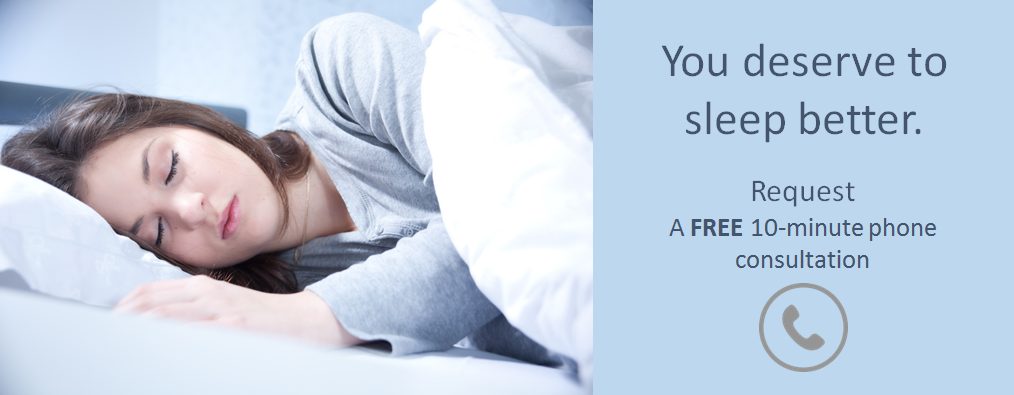
There are many different remedies and strategies to help you fall asleep at night, even if you struggle with insomnia. The key, however, is to also address the underlying health issues that might be causing you to stay awake. Namely, your hormones.
In this article, we’ll look at how your hormones affect sleep and give some tips for a better night’s rest.
Hormones and Sleep
It’s no wonder women report more sleep problems than men because hormones play a major role in your ability to rest at night. Hormone dips and spikes can both make it more difficult to turn off your brain and get the sleep you so desperately need.
There are a few times in a woman’s life when she’s most likely to have a hormonal imbalance that results in sleep problems. The first is during her menstrual cycle when estrogen is dropping quickly and progesterone takes over. The next is after pregnancy when progesterone is high from supporting the baby. The last is during menopause when estrogen production slows.
Men can have hormonal troubles too. It’s not uncommon for a man’s testosterone levels to fall out of balance with their naturally occurring estrogen, which can make it difficult to sleep.
If you think your hormones are to blame for your sleepless nights, consult with your doctor. There are many different hormone balance supplements to try that can help you get your body back on track. Now let’s look at some simpler tips for better sleep.
Stick to a Schedule
You’ve heard of the body’s circadian rhythm, but did you know it can help you sleep? That’s right. Your body enjoys routine and the closer you can stick to a daily schedule the easier it will be to fall asleep at night.
Create a sleep schedule for yourself that outlines when you’d like to go to bed and when you’d like to wake up. Keep in mind that you’ll have to follow this schedule every day, not just on work days, for it to be successful. It’ll be tough at first, but as your body gets used to this rhythm, you’ll notice yourself getting tired at the right time and falling asleep easily.
Ditch Screens
Although your screen might be your favorite distraction, it’s likely keeping you awake. Screens of all shapes and sizes emit flickering blue light that stimulates your brain. The more stimulated it is, the harder it is for you to turn off your thoughts and fall asleep.
Experts recommend you ditch all screens for at least one hour before bedtime, and try to limit your exposure to them during the day. This gives your brain time to wind down and return to its natural state before you attempt to fall asleep.
Find Your Purpose
It may seem a bit abstract, but a recent study from Northwestern University Feinberg School of Medicine and Rush University Medical Center in Chicago found that having a purpose in your daily life leads to fewer sleep disturbances and improved quality of sleep.
The study looked at a group of older adults — 823 participants ranging in age from 60 to 100 who had full command of their mental faculties. The researchers had the participants fill out two surveys, one with 10 questions about purpose in life — i.e. “I feel good when I think of what I’ve done in the past and what I hope to do in the future” — and another with 32 questions about sleep.
In particular, the researchers found that people who felt their lives had meaning were 63 percent less likely to have sleep apnea — when you have pauses in your breathing during sleep –and 52 percent less likely to have restless leg syndrome. They also saw better sleep quality in those who answered the purpose questions affirmatively.
So the next time you find yourself up in the middle of the night, instead of counting sheep, think about what will make you excited to get up in the morning and figure out the steps you need to take in order to achieve that goal.
All in all, every one of us should place more importance on sleep hygiene. Even if we’re doing our best to get a good night’s sleep, sometimes life gets in the way. But by following these tips, we can make it a little bit easier on ourselves when sleep doesn’t come easy.
If you are practicing proper sleep hygiene and still have a difficult time sleeping through the night you may have a sleeping disorder. Do NOT avoid going to see your primary care physician or a certified sleep doctor to try to uncover any sleep disorders that need to be diagnosed and treated.
If you’re an Alaskan experiencing difficulty with maintaining quality sleep, contact the Alaska Sleep Clinic and receive a free 10-minute phone call with a sleep educator. In this phone call we can help determine if a sleep study at one of our 4 Alaskan locations may be appropriate in diagnosing and treating your condition. Don’t let poor sleep get in the way of you and success at work and your personal life, contact us today.












